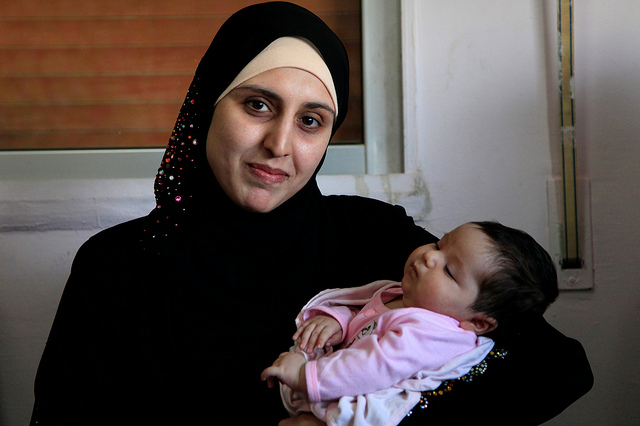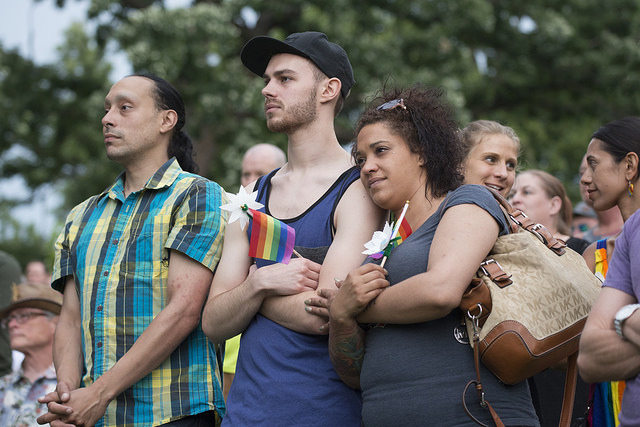The situation is all too familiar: a tragic event characterized by mass violence and hate occurs on United States soil, often targeting a marginalized group. Then, politicians exploit the opportunity to awaken latent fears of terrorism and implicate identity groups, such as Muslim immigrants, Syrian refugees, or other foreigners seeking resettlement in the United States. These groups, disempowered within the American political landscape, make convenient pawns for talking heads who gain political mileage from their exclusion. But these groups are more than pawns—they are real people in the midst of real crises with very real hopes to realize a new way of living.
This sequence of events risks becoming routine if we fail to realize that dehumanizing rhetoric and nativist policy prescriptions demand our immediate attention. While it is important to discuss and debate whether insufficient regulation of gun ownership or intolerance towards sexual minorities contributed to the tragedy in Orlando, we must also refute the premise that America’s so-called refugee “problem” caused the Orlando shooting. Potential links at any level between the shooter and extremist groups remain tenuous and unproven. And yet, a number of politicians have seized the opportunity to reframe this national tragedy as simply the latest chapter in a long history of exclusionary and illogical policy proposals.
In September 2015, the United States promised to resettle 10,000 Syrians fleeing civil war and unrest in their home country. As of February 2016, we had not yet achieved even a mere 10% of this target. To put this into perspective, Rwanda, an East African nation roughly the size of the state of Maryland, registered over 70,000 Burundian refugees at the conclusion of 2015. Nearly 75,000 Congolese refugees lived in Rwanda at the end of 2015; many have been in the country since 1996. Rwanda balances the dual burden of resettling Rwandan returnees and offering refuge to asylum-seekers from neighboring nations. The country’s transformation from a net-generator to a net-recipient of refugees over the past two decades remains nothing short of miraculous, particularly given the persistent refugee crisis in the Great Lakes Region of which it is a part. Bruised by violence and constrained by finite resources, Rwanda had every reason to shut doors, to wall up borders, and meticulously monitor air travel. No one would have thought less of them, as a nation. But the Rwandan government and the Rwandan people chose an alternative path. We, as Americans, likewise have an actionable alternative. Refugees are not to blame for American violence: this violence is an evil completely and fully our own.

A Syrian refugee woman with her 25-day old daughter in an International Rescue Committee clinic in Northern Jordan. (Photo: Russell Watkins)
When our economy takes a turn for the worse, we close our hands and fear the potential strain that refugees may place on our labor market or social safety net. When we experience mass violence, we search for answers, finding an easy scapegoat in an “other” from a different part of the world and a different cultural background. But this allows us to create distance from the consequences of our own actions in places such as the Middle East and North Africa or in Latin America; to forget our exportation of homophobia and other forms of intolerance to other parts of the world; and to dismiss our inaction in the face of urgent refugee crises across much of the African continent. We can respond to Orlando in one of two ways. We can metaphorically and literally shut our doors and connect homegrown hate to an ambiguous “other”—in this case, any non-native seeking refuge in the United States. Alternatively, we can take responsibility for our own hate and hold ourselves accountable for our own violence, creating the space for difficult conversations that—when paired with action—ultimately promise to make America not only a feasible, but desirable place to live for everyone.
 Danielle Allyn is a Princeton in Africa Fellow working in Communications and Development with Gardens for Health International Rwanda. After her fellowship, she will obtain her JD/MSW at New York University. She ultimately plans to return to Rwanda to work in advocacy related to the relationship between poverty and mental health.
Danielle Allyn is a Princeton in Africa Fellow working in Communications and Development with Gardens for Health International Rwanda. After her fellowship, she will obtain her JD/MSW at New York University. She ultimately plans to return to Rwanda to work in advocacy related to the relationship between poverty and mental health.

